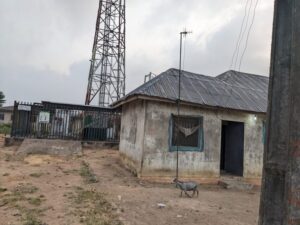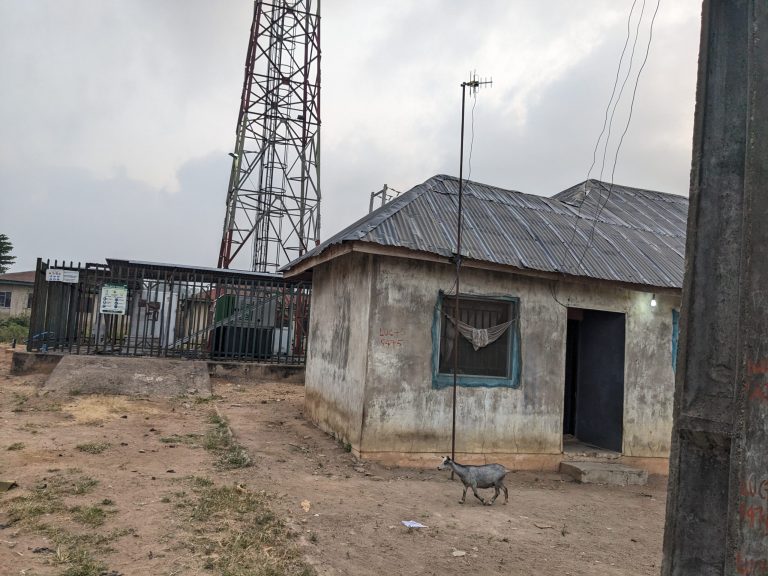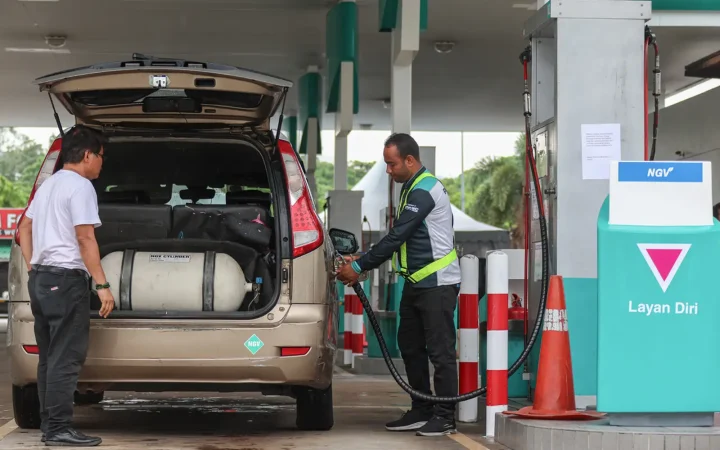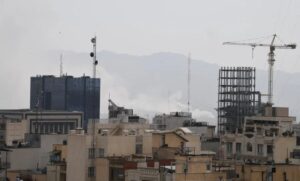Some Osun Residents Cannot Sleep at Night Due to Noise From an IHS Towers Mast
Residents of the Federal Low Cost Housing Estate, Agbowo, Iwo Local Government Area of Osun State, have been contending with environmental pollution resulting from a faulty generator installed at an IHS Towers’ telecommunication mast in the estate.

The generator powering the telecommunications infrastructure is located beside Lukman Abioye’s house. The father of three lives in a small house located near Olaide Bread in Agbowo, off Iwo-Ejigbo Road, Iwo, Osun State.

The network mast is operated by IHS Towers, a telecommunications infrastructure provider.
Abioye told this medium that the mast was erected by the company in 2005 but recently became a source of worry for not just his family but residents in the neighbourhood. The generator works 24 hours a day, despite being faulty and producing heavy noise.
Speaking on December 9, Abioye explained that the engine sound coming from the site had caused great discomfort to everyone around, particularly his kids.
“The level of disturbance we get from this generator is alarming. I have spoken to their engineers many times to resolve the loudness by changing the generator or fixing whatever is mechanically wrong,” Abioye said. “But it seems they are not considerate about our plights.”
He told FIJ that the sound was particularly high at night, causing his family sleepless nights. Because the facility is situated on the same plot as his building, his neighbours have expressed their frustration to him on many occasions and asked him to convey it to the company for prompt attention.
A video of the generator producing a loud noise
“I cannot lie to you. The house belongs to my father. Since we moved into the building in March, we have been enduring the noise coming from the generator. My children are unable to sleep well at night whenever the generator starts making noise. The sound affects their sleep. For me, my body is kind of adapted to it, as I don’t feel disturbed too much again.
“My neighbours have brought their complaints to me about how the generator disturbs them in their homes, and I have done all I can to make the engineers realise how it is constituting a nuisance to us. You can ask around. The elderly woman next to my building can explain better. It has become a weapon of sleeplessness for all of us around here.
“I think the problem has to do with the engine’s cover. Sometimes, the cover will just abruptly open, and the sound will become unbearable. There was even a day when the cover of the engine opened violently and oil was spilling everywhere. As you can see, the site is too close to the building. We feel ground vibrations in the building.
“When the engineer came the following day, I approached him angrily and asked him to work on the generator. We almost fought because I threatened that I would lock the site if they didn’t rectify the problem.”
Another resident, who chose not to mention their name, told FIJ the noise predated Abioye’s time in the house.
He said, “We have talked about it at estate meetings and even complained to the man who leased the land to the company, but the situation has not changed.
“It is a long story. The man who owned that building (pointing to a house on the other side of the street beside the mast) challenged the situation of the mast in a legal way. When he did not succeed in stopping it, he sold the building; he said he could not live with a mast a few steps from his house.”
EFFECTS OF THE NOISE ON HUMAN HEALTH
Public health experts say that generator noise may be injurious to people’s health and the environment. The effects can include stress, mental health issues and high blood pressure.
In a report by The PUNCH HealthWise, Onaeko Wemimo, an environmental health expert, explained that exposure to noise pollution from generators can cause discomfort, mental health issues and even hearing loss.
The expert stated that the effects of noise pollution on human beings include annoyance and mental health. He added that a generator produces some gases and releases them into the air, which would automatically affect people’s health due to the symbiotic relationship among plants, humans and the environment.
FIJ noticed some solar panels at the site, but they were not working. Abioye said the company had not fully installed them for alternative power generation at the site.
FIJ has not received any response to an email sent to the IHS spokespeople on December 29. Another email sent to the Nigerian Communications Commission (NCC), the nation’s telecommunications industry regulator, had not been responded to as of press time.
FIJ













Post Comment